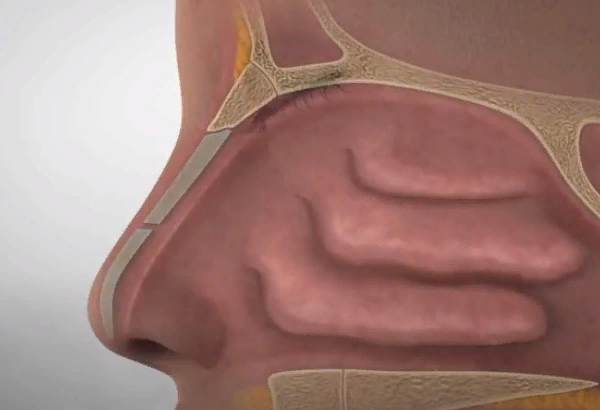Peanut allergies are among the most common and potentially severe food allergies. Identifying whether you have a peanut allergy is crucial to avoiding life-threatening reactions. Here’s what you need to know.
Risk Groups for Peanut Allergy
| Risk Group | Risk Percentage (%) |
|---|---|
| Family History | 80% |
| Other Allergies (Eczema, Asthma) | 60% |
| Infants & Toddlers | 70% |
| Late-Onset (Adults) | 20% |
| Severe Reactions in Childhood | 50% |
This chart presents the risk groups for peanut allergies, showing the likelihood of developing an allergy based on genetic and environmental factors. Family history has the highest correlation at 80%, while late-onset peanut allergy in adults is the least common at 20%.
What Are the Symptoms of Peanut Allergy?
Peanut allergy symptoms can range from mild to severe and usually appear within minutes to an hour after exposure. Common symptoms include:
1. Skin Reactions
Comparison: Similar to other allergic reactions, such as those to pollen or pet dander, but can be more intense and persistent. Examples:
- Hives (red, itchy welts that can appear anywhere on the body).
- Swelling, particularly around the eyes, lips, or face.
- Redness and itching, sometimes mistaken for an insect bite.
- Example: A 10-year-old child eats a peanut-based granola bar and develops a rash around the mouth and swelling of the eyelids within 10 minutes.
2. Digestive Issues
Comparison: Can mimic food poisoning or lactose intolerance, but usually occurs rapidly after eating peanuts. Examples:
- Stomach pain or cramps.
- Nausea and vomiting.
- Diarrhea, sometimes severe.
- Example: A teenager consumes peanut butter cookies and experiences stomach cramps followed by vomiting within 30 minutes.
3. Respiratory Symptoms
Comparison: Resembles cold symptoms but appears suddenly and worsens quickly. Examples:
- Sneezing, nasal congestion, or runny nose.
- Coughing and wheezing.
- Shortness of breath or chest tightness.
- Example: A man at a party eats a peanut sauce dish and begins coughing uncontrollably, followed by difficulty breathing.
4. Anaphylaxis (Severe Reaction)
Comparison: The most dangerous form of an allergic reaction, different from mild allergies as it affects multiple body systems simultaneously. Examples:
- Difficulty breathing due to throat swelling.
- Drop in blood pressure, leading to dizziness or fainting.
- Loss of consciousness in extreme cases.
- Example: A woman unknowingly consumes peanut traces in a dessert, immediately feels her throat closing, and collapses within minutes. Emergency epinephrine is administered to stabilize her condition.
If you experience any severe symptoms, seek emergency medical attention immediately.
How Can You Confirm a Peanut Allergy?
To determine if you have a peanut allergy, follow these steps:
1. Keep a Food Diary
Effectiveness: Helps identify potential triggers and establish patterns.
- Write down everything you eat and drink.
- Note any symptoms that occur, their severity, and time of onset.
- Compare your notes to see if peanuts consistently trigger a reaction.
- Example: If you develop hives after eating peanut butter on multiple occasions, peanuts may be the cause.
2. Try an Elimination Diet
Effectiveness: 80% accurate in identifying food allergens when done properly.
- Remove peanuts and peanut-containing products from your diet for at least two weeks.
- Slowly reintroduce peanuts in small amounts under medical supervision.
- If symptoms return after reintroduction, it may confirm the allergy.
- Example: A person who removes peanuts for a month and then experiences swelling after eating a peanut-based snack is likely allergic.
3. Undergo Allergy Testing
Effectiveness: 85-95% accurate when performed by a specialist.
- Skin Prick Test: A tiny amount of peanut protein is applied to the skin, and the area is observed for signs of a reaction (redness, swelling, or itching).
- Blood Test (IgE Test): Measures peanut-specific antibodies in the blood. Higher levels indicate a stronger allergic response.
- Example: A person whose skin test shows a raised, red bump after exposure to peanut protein likely has an allergy.
4. Consider an Oral Food Challenge (Medical Supervision Only)
Effectiveness: Gold standard for confirming food allergies with 99% accuracy.
- Conducted in a medical setting by an allergist.
- You will consume gradually increasing amounts of peanut under close observation.
- If symptoms occur, the test is stopped, confirming the allergy.
- Example: A controlled test where someone eats peanuts under a doctor’s care and experiences throat swelling confirms a severe allergy.
Methods to Prevent Peanut Allergy
Peanut allergy prevention involves several key strategies, especially for those at high risk. Below are the most effective methods:
1. Early Introduction of Peanuts
- Studies show that introducing peanuts to infants at 4-6 months reduces the risk of developing an allergy by up to 80%.
- Always consult a pediatrician before introducing peanuts to high-risk infants.
2. Strict Avoidance for Confirmed Allergies
- If already diagnosed, avoiding peanuts entirely is the best prevention strategy.
- Read labels carefully and be cautious of cross-contamination in processed foods.
3. Regular Medical Checkups
- Consult an allergist regularly to monitor allergic reactions and discuss potential desensitization therapies.
- Some individuals may benefit from oral immunotherapy to gradually reduce peanut sensitivity.
4. Carrying Emergency Medication
- Always have an epinephrine auto-injector available in case of accidental exposure.
- Educate family members and caregivers on how to use it properly.
Effectiveness of Prevention Measures
This horizontal bar chart illustrates the effectiveness of various prevention measures for peanut allergy reactions. Avoiding peanuts is the most effective method at 100%, while regular allergist visits help manage risks at 85%.
Editorial Advice
Peanut allergies can be life-threatening, so it’s essential to identify and manage them early. If you suspect an allergy, consult an allergist for proper testing and diagnosis. Always be prepared for an emergency and educate those around you about your condition. Stay safe by avoiding risky foods and carrying emergency medication. Reyus Mammadli, health care advisor, recommends that individuals with peanut allergies also explore safe, protein-rich alternatives such as lentils, chickpeas, and quinoa to maintain balanced nutrition without risk.
About the Author
Reyus Mammadli is the author of this health blog since 2008. With a background in medical and biotechnical devices, he has over 15 years of experience working with medical literature and expert guidelines from WHO, CDC, Mayo Clinic, and others. His goal is to present clear, accurate health information for everyday readers — not as a substitute for medical advice.







